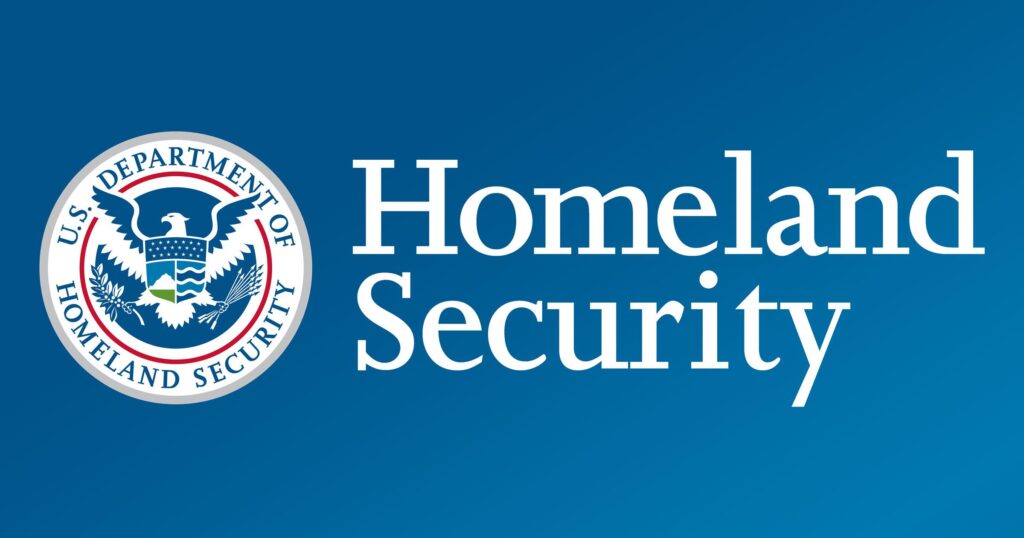Introduction to Homeland security
Our nation is protected by homeland security from a variety of dangers, including terrorism, natural disasters, and cyberattacks. The federal department in charge of these operations is called the Department of Homeland Security (DHS).

In order to stop, guard against, respond to, and recover from these threats, DHS collaborates with municipal and state governments as well as the commercial sector.
Here are a few activities carried out by DHS:
- Prevent and respond to cyber attacks
- Gather and analyze intelligence
- Work with state and local governments
- Educate the public about homeland security
- Protect our borders
- Secure our transportation systems
- Protect our critical infrastructure
- Respond to natural disasters
Security at home is a shared obligation. Everyone has a part to play in ensuring the security of our nation. By being aware of the dangers, being ready to take action, and informing the authorities of any questionable conduct, we can all do our role.
Here are some easy actions you may do to maintain the security of our nation:
- Stay informed about the latest threats and how to protect yourself.
- Support your local law enforcement and first responders.
- Be aware of your surroundings and report anything suspicious to the authorities.
- Have a plan in place for what you will do in the event of a natural disaster or terrorist attack.
By working together, we can make our country a safer place.
Preventing terrorism under homeland security
A diversified strategy is needed to stop terrorism. To identify potential dangers, intelligence organizations must first collect and analyze information. In order to stop the flow of terrorists and weapons, border security must be strengthened, and international collaboration is essential. It is crucial to combat extremist ideology through community engagement and education. By addressing socioeconomic inequalities, radicalization-promoting variables can be lessened. To foster trust and acquire data, law enforcement should engage in proactive community policing. Finally, fostering international peace and conflict resolution initiatives might lessen the factors that support terrorism. Combining these tactics encourages a comprehensive strategy for stopping terrorism, protecting society, and promoting a more secure world.
Securing the border under homeland security
Securing a border entails putting in place extensive safeguards to protect a nation’s territorial integrity and regulate the flow of people, products, and illegal activities across it. As part of this, border patrol agents are sent out, surveillance equipment like cameras and sensors is put in, and if necessary, physical obstacles like walls or fences are built. Strong immigration and customs policies as well as international collaboration are essential for border security. Effective border management upholds human rights and humanitarian ideals while ensuring national sovereignty, defending against dangers like terrorism and smuggling, and facilitating legal trade and travel. For a border strategy to be effective, security and humanitarian considerations must be balanced.
Protecting critical infrastructure
For the sake of national security, essential infrastructure must be secured. Cybersecurity, physical security, and resilient response plans are all examples of robust measures. To counter digital threats, cyber defenses include ongoing monitoring, robust encryption, and personnel training. Access restrictions, surveillance, and redundancy systems are all part of physical protection, which helps prevent physical assaults and accidents. Plans for readiness and recovery should also be thorough, routinely tested, and flexible enough to respond to changing security risks. To protect infrastructure against potential disruptions and ensure the stability and resilience of critical systems, cooperation between government agencies, the private sector, and international cooperation is crucial.
Why homeland security is important ?
Homeland security is crucial because it shields our nation from several dangers like terrorism, natural disasters, and cyberattacks. By securing our borders, implementing our immigration rules, and safeguarding our vital infrastructure, it accomplishes this. To keep our nation safe and secure, we must maintain strong domestic security.
Here are some specific reasons why it’s crucial to protect the homeland:
- DHS defends our vital infrastructure against cyberattacks and other dangers, including power plants, water treatment facilities, and communication networks.
- DHS provides food, water, shelter, and medical aid to those in need in response to natural disasters like hurricanes, floods, and earthquakes.
- In addition to conducting security checks at airports and other transportation hubs, the Department of Homeland Security (DHS) also looks into and foils terrorist plots.
- DHS protects our borders by enforcing immigration laws and patrolling the land, air, and marine boundaries.
Homeland security is a complex and challenging mission, but it is essential to keeping our country safe and secure.
Conclusion
Protecting India from dangers is the goal of homeland security. In collaboration with other organizations, the Department of Homeland Security (DHS) strives to stop terrorist acts, respond to natural catastrophes, and defend the country from cyberattacks.
Homeland security, to put it simply, is the process of protecting India against damage.












